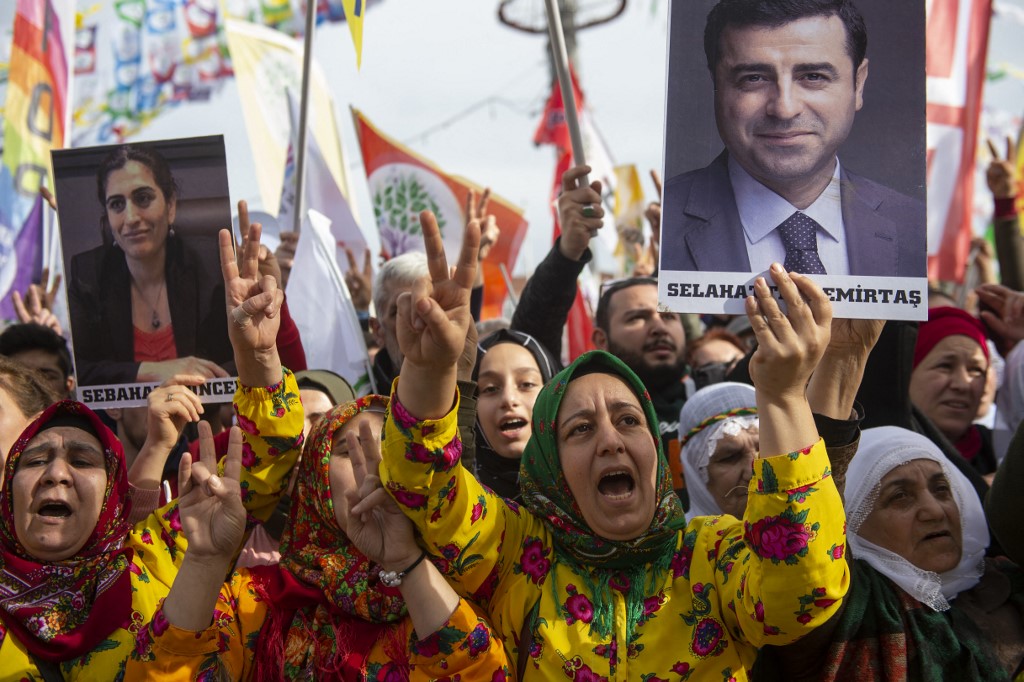Turkish President Recep Tayyip Erdoğan’s re-election has dashed hopes for the release of high-profile opposition figures who have been jailed during his rule, with a crackdown on dissent intensifying after a failed 2016 coup.
Secular challenger Kemal Kılıçdaroğlu had pledged to release them as part of an inclusive campaign message seeking to heal the wounds in Turkish society.
The president has given no indication he will offer his rivals an amnesty.
Osman Kavala
Philanthropist and activist Osman Kavala, 65, has been in prison since 2017 on charges of attempting to overthrow the government and financing mass protests in 2013.
The so-called “Gezi” demonstrations, initially sparked by plans to destroy an Istanbul park, morphed into a wider protest movement that rocked Erdoğan’s government.
In 2019, the European Court of Human Rights said Kavala’s arrest was aimed at silencing him and deterring other human rights defenders.
A Turkish court confirmed the Paris-born businessman’s conviction in a 2022 appeal hearing.
An 18-year prison sentence handed down to seven other defendants has also been maintained, including Tayfun Kahraman, an urban planner and top official at Istanbul’s municipal authority.
Film producer Çiğdem Mater, researcher Hakan Altınay and lawyer Can Atalay have also been imprisoned in connection with the Gezi movement.
Atalay was elected as an MP in the May 14 parliamentary elections and could soon be freed.
Selahattin Demirtaş
Selahattin Demirtaş, the figurehead of Turkey’s main pro-Kurdish Peoples’ Democratic Party (HDP), has been serving a prison sentence since 2016 for spreading “terrorist propaganda.”
He also stands accused of dozens of crimes, such as insulting the president and having ties to the outlawed Kurdistan Workers’ Party (PKK) and faces up to 142 years in prison.
Demirtaş has always denied the charges.
The PKK has since 1984 waged an insurgency for greater Kurdish autonomy in which tens of thousands have died.
Ankara and much of the international community have designated it as a terrorist organization.
Erdoğan’s government and the PKK held peace talks in the 2000s before they broke down and armed conflict resumed in 2015.
The Council of Europe has repeatedly demanded the release of Demirtaş in accordance with a ruling by the European Court of Human Rights.
The HDP has also demanded the liberation of two former mayors of Diyarbakır, a southeastern city considered Turkey’s informal Kurdish capital, and a former party co-president.
Writers, journalists, academics
Erdoğan’s critics are fighting a years-long crackdown on freedom of expression and media independence in Turkey.
The offense of “insulting the president” was frequently used during Erdogan’s last term to muffle dissident voices, with more than 16,000 such charges in 2022 alone.
According to Reporters Without Borders (RSF), 38 journalists are behind bars and dozens have fled abroad, including the former chief editor of the left-wing Cumhuriyet daily, Can Dündar.
He is now based in Germany after serving a prison sentence in 2015 for a report on Turkish weapons deliveries to armed jihadist groups in Syria.
Dündar was convicted in absentia to more than 27 years in prison in 2020.
More than a thousand university academics were also targeted in the purge of institutions that followed the 2016 coup attempt.
Their infraction consisted of signing a petition calling for peace and criticizing the government for the resumption of fighting between the state and the PKK.
© Agence France-Presse
